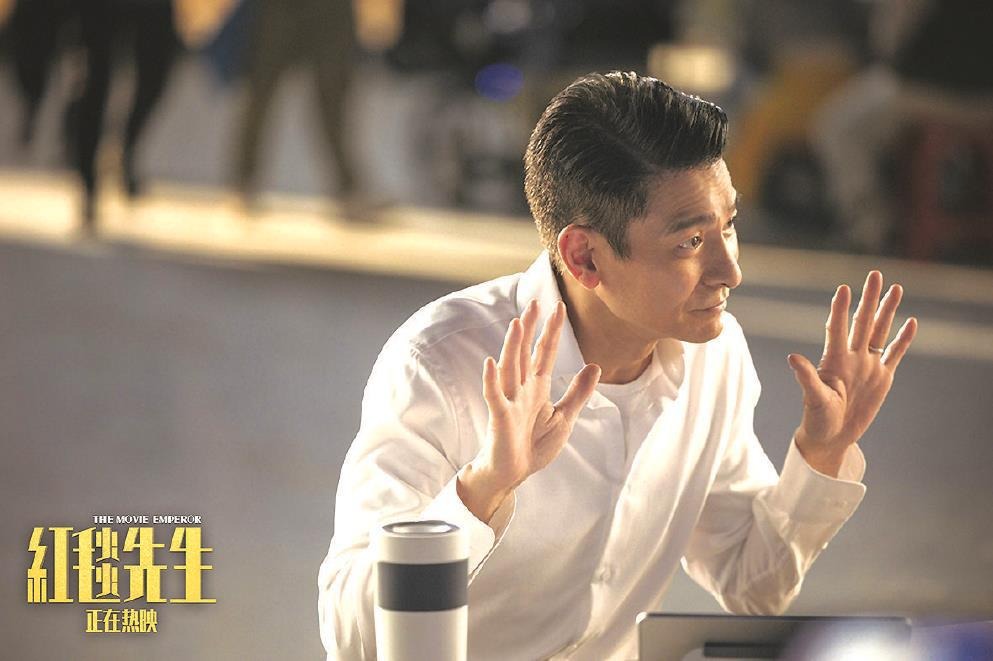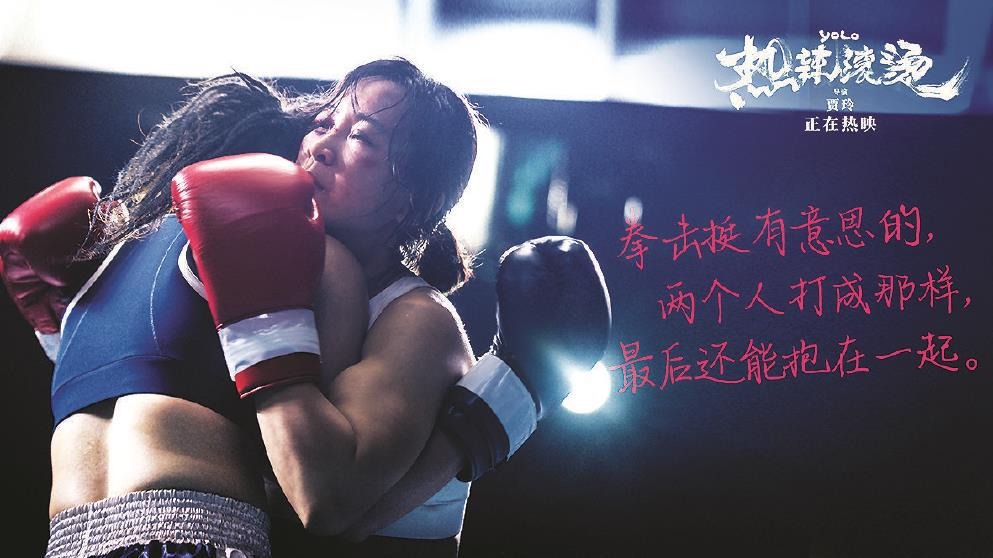Observing two recent comedy films "Mr. Red Carpet" and YOLO, both veteran comedy director Ning Hao and rookie comedy director Jia Ling focus on portraying a hero who impresses the audience in their new works. This is not only an important guarantee for the quality of the two comedy films, but also shows us their respective characterization dilemmas, which is a very meaningful phenomenon. Taking this as an opportunity, we can start thinking about the future development of China comedy films.

    Mr. Red Carpet: How does absurd comedy create characters who can empathize with the audience?
    Starting from Crazy Stone in 2006, Ning Hao-style comedy has gradually become the most representative domestic comedy type after Feng’s comedy. Its basic formula is simply mature type+comedy+nobody. By learning from and mixing various mature types, its plot structure, characterization and artistic innovation ability are relatively strong. With the participation of small people, this comedy can produce works that are extremely suitable for social and cultural needs. It is precisely because of these advantages that Ning Hao-style comedy has led to the emergence of many excellent comedy films, which has contributed to the development of domestic comedy films in recent years.
    However, The Crazy Alien and The Beneficiary in 2019 marked some creative difficulties in Ning Hao-style comedies. The dilemma of Crazy Alien lies in Ning Hao’s desire to push his comedy creation to a new height, but it has raised the audience’s viewing threshold, and some songs are high and low. This made him have to face the confusion and confusion of whether to want art or box office. "The Beneficiary" reveals that there are also problems in the formula of Ning Hao-style comedy. First, there are mistakes and excesses in the borrowing and mixing of mature types; The bigger problem lies in the characterization, in which the little hero loses the real sense of life and is in danger of becoming an empty symbol.
    In the new director’s work "Second-hand Masterpiece" supported by Ning Hao in 2023, a new attempt of Ning Hao-style comedy can be observed, that is, the creation focus is completely on the characterization, and the work has successfully portrayed the image of the writer’s father. The creative thinking of "Mr. Red Carpet" is very similar to that of "Second-hand Masterpiece", and it still focuses on the characterization, which should be Ning Hao’s conscious pursuit of a breakthrough in comedy creation. Moreover, the portrayal of the hero in Mr. Red Carpet is still successful artistically.
    The characters are rarely three-dimensional and complex. In order to challenge and prove himself, Liu Weichi, the hero, started an adventure and showed his complex personality in this adventure. The film grasps the rhythm of plot development well, with both patient and meticulous plot preparation and plot climax. The appearance of one small incident after another pushes the protagonist to the corner of fate step by step and has to face the truth of his personality.
    Audio-visual expression is also very delicate. At the beginning of the film, an attitude towards the protagonist is established through a distant shot, that is, a critical presentation is made with a detached attitude. Many key scenes also show Ning Hao’s excellent audio-visual control ability. But he didn’t show off his skills, but served the characterization completely. The thinking reflected by the characters is more broad and layered. Some of these thoughts are related to the film itself: how to make a film in the era of short video and strong capital? What is the standard of art film? But there are also many thoughts beyond movies, which are related to our times and universal human nature.
    Regrettably, however, the audience did not buy this comedy film, which was so focused and successful in characterization. Among them, the biggest problem is that Ning Hao himself has fallen into a state of both necessary and important creation, which leads to the positioning error of the film. If it is positioned as an art film or an author film, this work can actually be explored more avant-garde in art. Because absurd comedy "is an exaggerated and profound serious comedy with philosophical connotation", on the one hand, it is highly intelligent and difficult to create, which puts forward higher requirements for the creator’s ability. On the other hand, it also means the possibility of innovation, which can help creators to explore the truth of life and the depth of human nature. If the creator’s ability is superior, it is possible to produce excellent works and classics. However, as a result, absurd comedy has a high threshold for viewing, and it is often difficult to become a high-box office movie because of the complexity and depth of thinking.
    Ning Hao’s twist is that he intended to put the film on the Spring Festival file before, which was originally for the box office. However, if we want to achieve high box office, we must make some improvements on absurd comedy. The previous Ning Hao comedies all had some absurd comedies, and an important magic weapon was to shape the image of a little person who was extremely close to the times and made the audience feel good. This makes Ning Hao-style comedies not only have a strong link with social reality, thus reducing the abstraction and despair of absurd comedies, but also enables the characters to form empathy with the audience. The box office success of Ning Hao-style comedies such as "Crazy Stone" and "Happy Flowers" depends on this.
    Mr. Red Carpet, on the other hand, is unwilling to make such improvement, but insists on its completely absurd characteristics and superior elite perspective. Not only is the content very abstract, but it also points the critical edge at everyone. The image of the hero is not only the spokesman of high social status, but also the symbol of abstract spirit, which not only makes the audience feel alienated and disgusted, but also can’t form empathy with the hero. So even if this comedy created a successful character, the audience still didn’t buy it.

    YOLO: How do the characters in autobiographical comedies surpass themselves after empathizing with the audience?
    The uniqueness of Jia Ling’s films is that she has been filming herself all the time. She has integrated her life experience into comedy creation and become a unique autobiographical comedy. This film content with her life experience also gave birth to a unique hero image in her comedies: sincere Jia Ling. This makes it particularly easy for the protagonist of her comedy movie to form empathy with the audience, which has become a weapon for her to win high box office. But this autobiographical comedy creation idea is very limited to commercial comedy:
    The first is the subject matter limit. Judging from Jia Ling’s two works, the first one can be completely original, but the second one can only be adapted from the existing one, because the autobiographical content is limited after all. However, the story and character logic carried by the adapted works will not only create tension with Jia Ling’s autobiographical pursuit, but also expose Jia Ling’s lack of ability as a new director. Love of a Hundred Dollars shows a story of a heroine who has lost hope in life and seeks the meaning of life again from boxing training. This state of life of bereavement and despair is obviously not suitable for comedy. This also leads to YOLO’s need to find new spiritual characteristics for the hostess in the adaptation, and it must also belong to Jia Ling’s own characteristics, so the protagonist in "Hot" is shaped as a flattering personality with Jia Ling’s personality characteristics.
    However, this change of the hero’s spiritual temperament must be supported by reasonable plots and characterization, which exposes the problems of Hot. In order to show the kindness of the heroine, the film portrays all the people around her as villains, and the changes of many characters are too abrupt and illogical. In fact, they are just tools to push the woman to boxing, and their role is to make her fall into a rebellious situation with high-density conflicts. The accumulation of punchline in the film has nothing to do with the main plot, and it is funny for fun. In order to make the audience agree with the female host’s flattering personality, the film even directly uses "two apples", "depending on the mood" and "two people can still hug each other like that. I thought that if you want to get a hug, you have to be kind to people! " Wait for the dialogue scene to output opinions straightforwardly. But in fact, the motivation connection between the female host’s flattering personality and boxing is still unconvincing. All these show that the first two-thirds of the film still has a lot of room for improvement in film quality. The main attraction of the film comes from the final climax, but it also comes from the shock brought by Jia Ling’s physical and mental changes to the audience. Many viewers even think that the final weight loss tidbits of the film are more shocking than the film itself.
    The second is the limit of self-consumption. Jia Ling in Hi, Mom formed empathy with the audience by virtue of her sincere and painful emotional ties with her mother. In YOLO, Jia Ling used the real change of the flesh to express a kind of strength and form empathy with the audience. The real weight change of gaining 40 pounds first and then losing 100 pounds has become the key to shaping the image of the heroine, which also brings the most important drama in the film. To gain 40 pounds first is to change the lovely image of Jia Ling’s fat figure in the eyes of the audience, so as to make the audience feel strange about her. Losing another 100 pounds will not only make Jia Ling’s body bring great visual impact to the audience, but also make Jia Ling’s body become an important carrier of tenacity, tenacity, self-discipline and self-confidence after successfully losing weight. However, this kind of self-consumption is limited to Jia Ling, both as a director and an actress, and it is difficult to continue. This also means that there is still great uncertainty about how to create a high-quality character image in Jia Ling’s next film.
    Where is the future of characterization in China’s comedy films? China’s comedy film creation has been relatively weak in recent years, and the lack of attention to characterization is one of the great reasons. Both Ning Hao and Jia Ling put their creative focus back on characterization, which has brought good enlightenment to China comedy films to get rid of the current creative dilemma. If we look at the characterization of the two works comprehensively, we can find a way out for the future characterization of China’s comedy films. Jia Ling’s success inspires the creators that creating comic characters that can make the audience empathize must be the basis and bottom line of commercial comedy. Ning Hao’s efforts show that empathy alone is not enough, and we need to work hard on the three-dimensional complexity of characterization, the synergy of plot and audio-visual, and the depth of characters. If we can focus on creating high-quality characters that make the audience empathize, there may be great hope for China comedy films to get out of the current bottleneck.
    (Gui Lin, the author is a professor at the College of Literature, China Academy of Social Sciences)